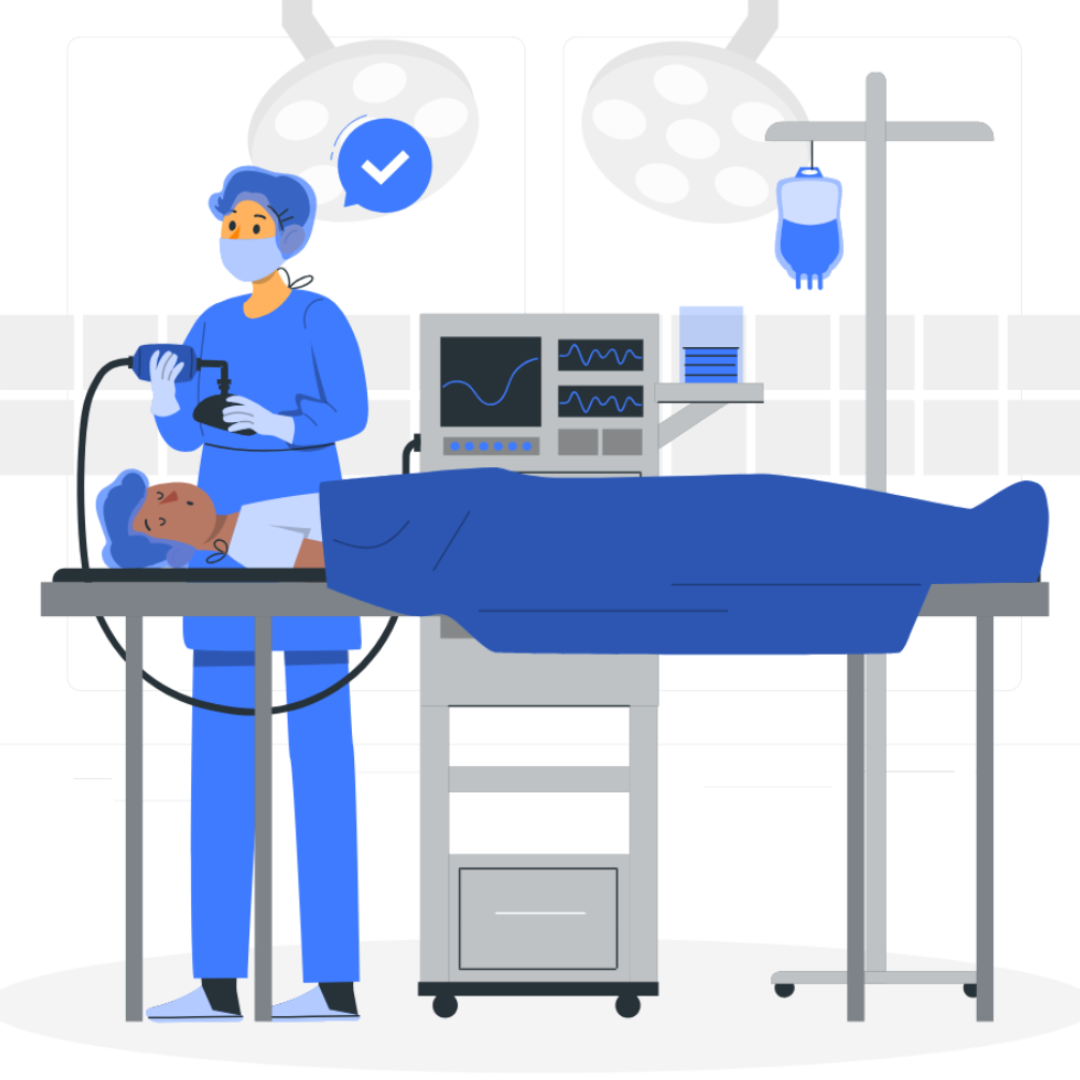Patient Information Blogs

Beyond The Bulge: Your Guide to Understanding Hernia and its Surgical Management
Courtesy of: Dr. Reem Shahid; Sen. Reg., Medicsi
12/05/2024
Beyond The Bulge: Your Guide to Understanding Hernia and its Surgical Management
Courtesy of: Dr. Reem Shahid; Sen. Reg., Medicsi
12/05/2024
Hernias are common medical conditions that affect millions of people worldwide. They occur when an organ or fatty tissue pops out through a weak spot or opening in the surrounding muscle or connective tissue in your body. While hernias are not usually life-threatening, they can cause discomfort and, if left untreated, lead to complications. In this blog, we will explore the types of abdominal hernias, their symptoms, and most importantly, their surgical management to help patients make informed decisions about their healthcare.

Types of Abdominal Hernias:
1. Inguinal Hernia: This is the most common type of hernia, occurring when tissue, usually part of the intestine, protrudes through a weak spot in the abdominal muscles in the groin area.
2. Femoral Hernia: Similar to inguinal hernias, femoral hernias also occur in the groin area but are more common in women. They happen when tissue pushes through a weak spot in the groin or inner thigh.
3. Umbilical Hernia: This type of hernia occurs when part of the intestine or sometimes just omentum – a fatty apron that wraps your stomach and intestine, protrudes through the abdominal muscles near the belly button.
4. Incisional Hernia: These hernias develop at the site of a previous surgical incision, where the muscles have weakened or separated.
Symptoms of Hernias:
– A noticeable lump or bulge in the affected area
– Pain or discomfort, especially when lifting heavy objects or straining
– A feeling of heaviness or pressure in the abdomen
– A burning or aching sensation at the site of the hernia
– Nausea or constipation in some cases
Complications of hernias:
Hernias, if left untreated or inadequately managed, can lead to various complications, ranging from mild discomfort to severe pain if it becomes strangulated & sometimes may lead to serious medical emergencies like obstruction intestine or gangrene of various abdominal organs impacted at the hernia site. Recurrence of hernia can be avoided if the patient is operated on by the right professional.
Surgical Management:
Surgery is the only treatment option for hernias and is only avoided when there is a contraindication for surgery. Surgery can be performed by making a cut on the tummy or through small holes called laparoscopic hernia repair. (key hole).
Recovery and Aftercare:
After hernia surgery, it’s essential to follow your surgeon’s instructions for a smooth recovery:
– Rest and avoid strenuous activities for the recommended period.
– Take prescribed pain medications as directed.
– Gradually increase physical activity and avoid heavy lifting for several weeks.
– Attend follow-up appointments to monitor healing and address any concerns.
– Maintain a healthy lifestyle, including regular exercise and a balanced diet, to reduce the risk of hernia recurrence.
Conclusion:
Hernias are a common medical issue that can significantly impact daily life if left untreated. Fortunately, surgical options are available to repair hernias effectively and prevent complications. By understanding the types of hernias, their symptoms, and surgical management options, patients can work with their healthcare providers to make informed decisions about their treatment and achieve a successful recovery. Remember, early intervention and proper care are key to managing hernias and maintaining overall well-being.
Hernias are common medical conditions that affect millions of people worldwide. They occur when an organ or fatty tissue pops out through a weak spot or opening in the surrounding muscle or connective tissue in your body. While hernias are not usually life-threatening, they can cause discomfort and, if left untreated, lead to complications. In this blog, we will explore the types of abdominal hernias, their symptoms, and most importantly, their surgical management to help patients make informed decisions about their healthcare.
Types of Abdominal Hernias:
1. Inguinal Hernia: This is the most common type of hernia, occurring when tissue, usually part of the intestine, protrudes through a weak spot in the abdominal muscles in the groin area.
2. Femoral Hernia: Similar to inguinal hernias, femoral hernias also occur in the groin area but are more common in women. They happen when tissue pushes through a weak spot in the groin or inner thigh.
3. Umbilical Hernia: This type of hernia occurs when part of the intestine or sometimes just omentum – a fatty apron that wraps your stomach and intestine, protrudes through the abdominal muscles near the belly button.
4. Incisional Hernia: These hernias develop at the site of a previous surgical incision, where the muscles have weakened or separated.
Symptoms of Hernias:
– A noticeable lump or bulge in the affected area
– Pain or discomfort, especially when lifting heavy objects or straining
– A feeling of heaviness or pressure in the abdomen
– A burning or aching sensation at the site of the hernia
– Nausea or constipation in some cases
Complications of hernias:
Hernias, if left untreated or inadequately managed, can lead to various complications, ranging from mild discomfort to severe pain if it becomes strangulated & sometimes may lead to serious medical emergencies like obstruction intestine or gangrene of various abdominal organs impacted at the hernia site. Recurrence of hernia can be avoided if the patient is operated on by the right professional.
Surgical Management:
Surgery is the only treatment option for hernias and is only avoided when there is a contraindication for surgery. Surgery can be performed by making a cut on the tummy or through small holes called laparoscopic hernia repair. (key hole).
Recovery and Aftercare:
After hernia surgery, it’s essential to follow your surgeon’s instructions for a smooth recovery:
– Rest and avoid strenuous activities for the recommended period.
– Take prescribed pain medications as directed.
– Gradually increase physical activity and avoid heavy lifting for several weeks.
– Attend follow-up appointments to monitor healing and address any concerns.
– Maintain a healthy lifestyle, including regular exercise and a balanced diet, to reduce the risk of hernia recurrence.
Conclusion:
Hernias are a common medical issue that can significantly impact daily life if left untreated. Fortunately, surgical options are available to repair hernias effectively and prevent complications. By understanding the types of hernias, their symptoms, and surgical management options, patients can work with their healthcare providers to make informed decisions about their treatment and achieve a successful recovery. Remember, early intervention and proper care are key to managing hernias and maintaining overall well-being.





